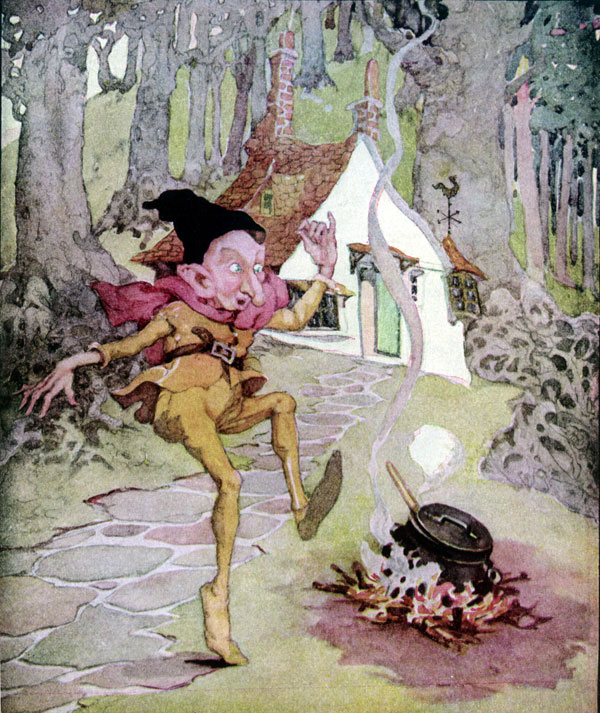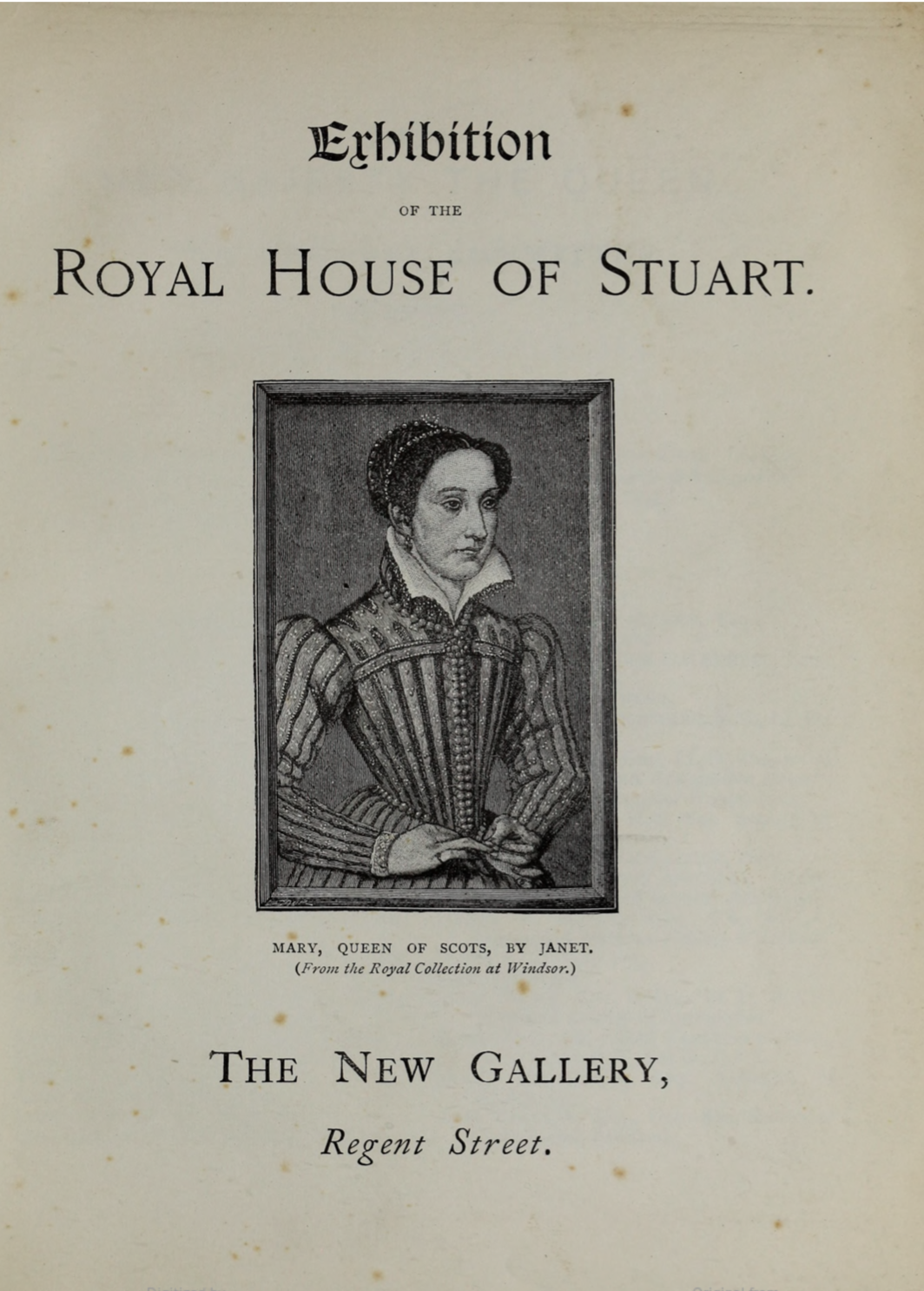|
Andrew Lang
Andrew Lang (31 March 1844 – 20 July 1912) was a Scottish poet, novelist, literary critic, and contributor to the field of anthropology. He is best known as a folkloristics, collector of folklore, folk and fairy tales. The Andrew Lang lectures at the University of St Andrews are named after him. Biography Lang was born in 1844 in Selkirk, Scottish Borders. He was the eldest of the eight children born to John Lang, the town clerk of Selkirk, and his wife Jane Plenderleath Sellar, who was the daughter of Patrick Sellar, factor (Scotland), factor to the first George Leveson-Gower, 1st Duke of Sutherland, Duke of Sutherland. On 17 April 1875, he married Leonora Blanche Alleyne, youngest daughter of C. T. Alleyne of Clifton and Barbados. She was (or should have been) variously credited as author, collaborator, or translator of ''Andrew Lang's Fairy Books, Lang's Colour/Rainbow Fairy Books'' which he edited. He was educated at Selkirk Grammar School, Loretto School, and the ... [...More Info...] [...Related Items...] OR: [Wikipedia] [Google] [Baidu] |
Selkirk, Scottish Borders
Selkirk is a town and historic royal burgh in the Scottish Borders council district of southeastern Scotland. It lies on the Ettrick Water, a tributary of the River Tweed. The people of the town are known as Souters, which means cobblers (shoe makers and menders). At the time of the 2011 census, Selkirk's population was 5,784. History Early origins Selkirk was formerly the county town of Selkirkshire. Selkirk is one of the oldest Royal Burghs in Scotland and is the site of the earliest settlements in what is now the Scottish Borders. The town's name means "church by the hall" from the Old English ''sele'' ("hall" or "manor") and ''cirice'' ("church"). Selkirk was the site of the first Borders abbey, a community of Tironensian monks who moved to Kelso Abbey during the reign of King David I. In 1113, King David I granted Selkirk large amounts of land. William Wallace was declared guardian of Scotland in the town at the Kirk o' the Forest in 1297. War of the Three Kingdoms ... [...More Info...] [...Related Items...] OR: [Wikipedia] [Google] [Baidu] |
Loretto School
Loretto School, founded in 1827, is an independent school (UK), independent boarding and day school for boys and girls aged 3 to 18. The campus occupies in Musselburgh, East Lothian, Scotland. History The school was founded by the Reverend Thomas Langhorne in 1827. Langhorne came from Crosby Ravensworth in Westmorland. He named the school for Loretto House, his then home, which was itself named for a medieval chapel dedicated to Our Lady of Loreto, which had formerly stood on the site of the school. The school was later taken over by his son, also named Thomas Langhorne. The last link with the Langhorne family was Thomas' son John Watson's Institution#John Langhorne (1897–1925), John, who was a master at Loretto from 1890 to 1897, and later headmaster at John Watson's Institution. Loretto was later under the headmastership of Dr. Hely Hutchinson Almond from 1862 to 1903. In the 1950s the school increased the accommodation in science laboratories, established arts as a part o ... [...More Info...] [...Related Items...] OR: [Wikipedia] [Google] [Baidu] |
Noble Savage
In Western anthropology, Western philosophy, philosophy, and European literature, literature, the Myth of the Noble savage refers to a stock character who is uncorrupted by civilization. As such, the "noble" savage symbolizes the innate goodness and moral superiority of a primitive people living in harmony with nature. In the heroic drama of the stageplay ''The Conquest of Granada, The Conquest of Granada by the Spaniards'' (1672), John Dryden represents the ''noble savage'' as an archetype of Man-as-Creature-of-Nature. The intellectual politics of the Stuart Restoration (1660–1688) expanded Dryden's playwright usage of ''savage'' to denote a human ''wild beast'' and a ''wild man''. Concerning civility and incivility, in the ''Inquiry Concerning Virtue, or Merit'' (1699), the philosopher Anthony Ashley-Cooper, 3rd Earl of Shaftesbury, said that men and women possess an innate morality, a sense of right and wrong conduct, which is based upon the intellect and the emotions, and not ... [...More Info...] [...Related Items...] OR: [Wikipedia] [Google] [Baidu] |
John Wyon Burrow
John Wyon Burrow, FBA (4 June 1935 in Southsea – 3 November 2009 in Witney, Oxfordshire)John Burrow -Leading Scholar of Intellectual History , The Independent. 22 January 2010 was an English historian of .John Burrow: author of A History of Histories’ The Times, 2 December 2009. His published works include assessments of the ... [...More Info...] [...Related Items...] OR: [Wikipedia] [Google] [Baidu] |
John Ferguson McLennan
John Ferguson McLennan FRSE LLD (14 October 1827 – 16 June 1881), was a Scottish advocate, social anthropologist and ethnologist. Life He was born in Inverness, the son of John McLennan, an insurance agent, and his wife, Jessie Ross. He was educated in that city, then studied law at King's College, Aberdeen, graduating M.A. in 1849. He then entered Trinity College, Cambridge, where in 1853 he obtained a Wrangler's place ( first class) in the Mathematical Tripos. He left Cambridge without taking a degree there. McLennan then spent two years in London writing for '' The Leader'', at that time edited by George Henry Lewes, and other periodicals. He may well have attended one of the Inns of Court. During this period he knew George Eliot and William Michael Rossetti, and dabbled in verse in the Pre-Raphaelite style.Robert Crawford, ''Devolving English Literature'' (2000), pp. 152–3Google Books On returning to Edinburgh, he was called to the Scottish bar in January 1857. He be ... [...More Info...] [...Related Items...] OR: [Wikipedia] [Google] [Baidu] |
Religion
Religion is a range of social system, social-cultural systems, including designated religious behaviour, behaviors and practices, morals, beliefs, worldviews, religious text, texts, sanctified places, prophecies, ethics in religion, ethics, or religious organization, organizations, that generally relate humanity to supernatural, transcendence (religion), transcendental, and spirituality, spiritual elements—although there is no scholarly consensus over what precisely constitutes a religion. It is an essentially contested concept. Different religions may or may not contain various elements ranging from the divine, sacredness, faith,Tillich, P. (1957) ''Dynamics of faith''. Harper Perennial; (p. 1). and a supernatural being or beings. The origin of religious belief is an open question, with possible explanations including awareness of individual death, a sense of community, and dreams. Religions have sacred histories, narratives, and mythologies, preserved in oral traditions, sac ... [...More Info...] [...Related Items...] OR: [Wikipedia] [Google] [Baidu] |
Mythology
Myth is a genre of folklore consisting primarily of narratives that play a fundamental role in a society. For scholars, this is very different from the vernacular usage of the term "myth" that refers to a belief that is not true. Instead, the veracity of a myth is not a defining criterion. Myths are often endorsed by religious (when they are closely linked to religion or spirituality) and secular authorities. Many societies group their myths, legends, and history together, considering myths and legends to be factual accounts of their remote past. In particular, creation myths take place in a primordial age when the world had not achieved its later form. Origin myths explain how a society's customs, institutions, and taboos were established and sanctified. National myths are narratives about a nation's past that symbolize the nation's values. There is a complex relationship between recital of myths and the enactment of rituals. Etymology The word "myth" comes from Ancient ... [...More Info...] [...Related Items...] OR: [Wikipedia] [Google] [Baidu] |
Rumpelstiltskin
"Rumpelstiltskin" ( ; ) is a German fairy tale collected by the Brothers Grimm in the 1812 edition of ''Children's and Household Tales''. The story is about an imp who spins straw into gold in exchange for a woman's firstborn child. Plot In order to appear superior, a miller brags to the king and people of his kingdom by claiming his daughter can Spinning (textiles), spin straw into gold.Some versions make the miller's daughter blonde and describe the "straw-into-gold" claim as a careless boast the miller makes about the way his daughter's straw-like blond hair takes on a gold-like lustre when sunshine strikes it. The king calls for the girl, locks her up in a tower room filled with straw and a spinning wheel, and demands she spin the straw into gold by morning or he will have her killed.Other versions have the king threatening to lock her up in a dungeon forever, or to punish her father for lying. When she has given up all hope, a little imp-like man appears in the room and ... [...More Info...] [...Related Items...] OR: [Wikipedia] [Google] [Baidu] |
Angina Pectoris
Angina, also known as angina pectoris, is chest pain or pressure, usually caused by insufficient blood flow to the heart muscle (myocardium). It is most commonly a symptom of coronary artery disease. Angina is typically the result of partial obstruction or spasm of the arteries that supply blood to the heart muscle. The main mechanism of coronary artery obstruction is atherosclerosis as part of coronary artery disease. Other causes of angina include abnormal heart rhythms, heart failure and, less commonly, anemia. The term derives , and can therefore be translated as "a strangling feeling in the chest". An urgent medical assessment is suggested to rule out serious medical conditions. There is a relationship between severity of angina and degree of oxygen deprivation in the heart muscle. However, the severity of angina does not always match the degree of oxygen deprivation to the heart or the risk of a heart attack (myocardial infarction). Some people may experience s ... [...More Info...] [...Related Items...] OR: [Wikipedia] [Google] [Baidu] |
Fellow Of The British Academy
Fellowship of the British Academy (post-nominal letters FBA) is an award granted by the British Academy to leading academics for their distinction in the humanities and social sciences. The categories are: # Fellows – scholars resident in the United Kingdom # Corresponding Fellows – scholars resident overseas # Honorary Fellows – an Honorary title (academic), honorary academic title (whereby the post-nominal letters "Hon FBA" are used) # Deceased Fellows – Past Fellows of the British Academy The award of fellowship is based on published work and fellows may use the post-nominal letters ''FBA''. Examples of Fellows are Edward Rand; Mary Beard (classicist), Mary Beard; Roy Porter; Nicholas Stern, Baron Stern of Brentford; Michael Lobban; M. R. James; Friedrich Hayek; John Maynard Keynes; Lionel Robbins; and Rowan Williams. See also * List of fellows of the British Academy References Fellows of learned societies of the United Kingdom, British Academy Fello ... [...More Info...] [...Related Items...] OR: [Wikipedia] [Google] [Baidu] |
Neo-Jacobite Revival
The Neo-Jacobite Revival was a political movement active during the 25 years before the First World War in the United Kingdom. The movement was monarchist, and had the specific aim of replacing British parliamentary democracy with a restored monarch from the deposed House of Stuart. The reign of the House of Stuart The House of Stuart was a European royal house that originated in Scotland. Nine Stuart monarchs ruled Scotland alone from 1371 until 1603. The last of these, King James VI of Scotland became King James I of England and Ireland after the death of Elizabeth I in the Union of the Crowns. The Stuarts ruled the United Kingdom until 1714, when Queen Anne died. Parliament had passed the Act of Settlement 1701 and the Act of Security 1704, which transferred the Crown to the House of Hanover, ending the line of Stuart monarchs. James claimed the Divine right of kings – meaning that he believed his authority to rule was divinely inspired. He considered his decisions ... [...More Info...] [...Related Items...] OR: [Wikipedia] [Google] [Baidu] |








